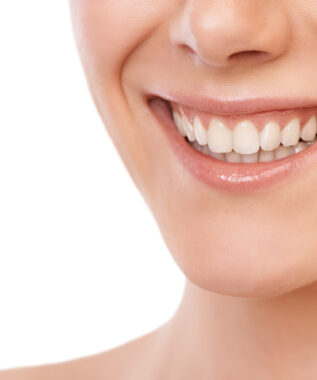 For a number of people out there, the biggest threat to a perfect smile does not have to do with harmful oral bacteria, but instead, unconscious teeth grinding throughout the night. Indeed, bruxism – the name given to chronic teeth grinding – affects a number of people every year. While it may not seem like a major concern at first, over time it will compound damage and destruction to your grin. In today’s blog, your Leawood, KS dentist will take a look at what causes bruxism and how our team may be able to help with a custom treatment.
For a number of people out there, the biggest threat to a perfect smile does not have to do with harmful oral bacteria, but instead, unconscious teeth grinding throughout the night. Indeed, bruxism – the name given to chronic teeth grinding – affects a number of people every year. While it may not seem like a major concern at first, over time it will compound damage and destruction to your grin. In today’s blog, your Leawood, KS dentist will take a look at what causes bruxism and how our team may be able to help with a custom treatment.
Damaging Your Teeth
Bruxism can be defined as chronic structural grinding that typically occurs when you are asleep. Indicators that you may be experiencing this phenomenon include waking with a tense or sore jaw, as well as some sensitivity to your oral structures. What is happening is that your oral structures are pressing tensely against one another as your jaw is moving from side-to-side, causing friction. Not only does this cause discomfort, but it actually results in worn surfaces as well. What’s more, the more this process occurs, the more likely you will be susceptible to dental infections and harm caused by oral bacteria, as the weakened surfaces make way for easy access for them. If you suspect this is happening to you, please do not hesitate to reach out to our team and learn your options for treatment today.
Make Way for Discomfort
It goes without saying that with weakened structures comes functional difficulties and discomfort. In fact, waking up with a sore jaw is only one of many side effects that you may experience. Others include headaches, difficulty opening the mouth to chew, bite, or speak, and even a popping or clicking sensation that arises when moving your lower mandible.
Additionally, you should understand that the situation is not going to get better without treatment. Unlike a stomach ache or other temporary condition, bruxism’s effects can be long-lasting and only get worse with time. You should contact your dentist as soon as possible in order to receive the treatment you need.
Bigger Concerns
In addition to the side effects grinding causes, it can result in bigger concerns such as the development of TMJ disorder. Your temporomandibular joints (TMJ’s) are what your lower jaw hinges on, connecting it to the cranium. When you constantly grind your teeth, the mandible can become misaligned with these joints, resulting in that intense popping and clicking we mentioned earlier. This is typically the result of your jaw attempting to reorient itself, and can be painful to experience. With proper treatment such as splint therapy or a custom oral appliance, however, your alignment can be restored once more.
Learn More Today
For more information about the effects of grinding or to schedule your appointment with our team today, contact Dreem Dentistry in Leawood, KS by calling 913-681-5500.






